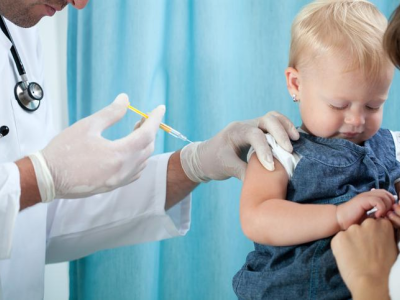As many as 40 state public health labs could begin testing for the COVID-19 virus using parts of the test developed by the Centers for Disease Control and Prevention (CDC) as early as this week, according to the Association of Public Health Laboratories (APHL).
"As of now: @CDCgov & @US_FDA developed a new protocol using 2 of 3 components of original test kit. Many public health labs are able to use the original kit w/out problem component to begin testing as soon as this week," APHL said on its Twitter feed.
Earlier this month, the CDC's rollout of test kits was delayed after problems were found with some the kits' reagent. The APHL wrote a letter to the Food and Drug Administration (FDA) on Feb 24, asking the agency for enforcement discretion to allow state and local public health labs the ability to create a laboratory-developed test for the detection of the novel coronavirus.
On Twitter, the APHL said its scientists were in talks all day yesterday with the FDA and CDC to figure out a way to allow labs to use functioning tests.
California patient not tested for days
Testing capacity across the United States was called into doubt yesterday when officials at the University of California Davis said the latest patient diagnosed in California was not tested for COVID-19 for several days because the person did not have a travel history to China or contact with a case-patient.
The patient may represent the first US case involving community spread of COVID-19.
According to a statement from UC Davis Medical Center, where the patient is being treated, the test was requested immediately upon the patient’s admittance on Feb 19.
"We requested COVID-19 testing by the CDC, since neither Sacramento County nor the California Department of Public Health is doing testing for coronavirus at this time. Since the patient did not fit the existing CDC criteria for COVID-19, a test was not immediately administered. UC Davis Health does not control the testing process," the hospital said.
"Sunday (Feb. 23), the CDC ordered COVID-19 testing of the patient, and the patient was put on airborne precautions and strict contact precautions, because of our concerns about the patient's condition."
But all California hospitals might not be prepared to protect their workers. According to a survey of the California Nurses Association and National Nurses United released earlier this week, only 31% of nurses said employers have made personal protective equipment available to them. And only 13% of the roughly 3,000 nurses asked said they had a patient isolation plan in place, and only 46% said the had been given COVID-19 information.
Pence names Birx as response coordinator
The CDC confirmed the California case late yesterday, just minutes after President Donald Trump concluded a televised address to the nation concerning COVID-19. During the address, Trump appointed Vice President Mike Pence to lead the federal effort to control the virus.
Today, the New York Times reported that health officials on the president's coronavirus task force said that all COVID-19 messaging must now be approved by the Office of the Vice President.
"Dr. Anthony S. Fauci, one of the country's leading experts on viruses and the director of the National Institute of Allergy and Infectious Diseases, told associates that the White House had instructed him not to say anything else without clearance," the Times reported.
Today, Pence named Deborah L. Birx, MD, the director of the United States effort to combat HIV and AIDS, to serve as the coronavirus response coordinator for the White House.
Nebraskans asked to self-report
Yesterday the Nebraska Department of Health and Human Services (DHHS) announced a new plan, which asks Nebraskans to self-report to a public health online system any travel to China, Hong Kong, Japan, South Korea, Iran, Italy, Singapore, Taiwan, Thailand and Vietnam, in the past 14 days.
"It is very possible that we could see travel-related COVID-19 cases in Nebraska residents," the DHHS said.
Finally, Novavax announced yesterday it has started testing COVID-19 vaccine candidates in animal models in the hopes of identifying a candidate to be used in human testing as early as this spring.
The vaccine candidates were developed with the company's recombinant protein nanoparticle technology platform and Matrix-M adjuvant.
"Now that the protein has been expressed stably in our baculovirus system, we aim to identify the optimal candidate and scale up production of sufficient vaccine for preliminary clinical trials. We are now well-positioned to advance the COVID-19 vaccine candidate to Phase I clinical testing in May or June," said Stanley C. Erck, MBA, president and CEO of Novavax.
See also:
Feb 12 CIDRAP News story "Glitch delays COVID-19 tests for states as first evacuees cleared"






















